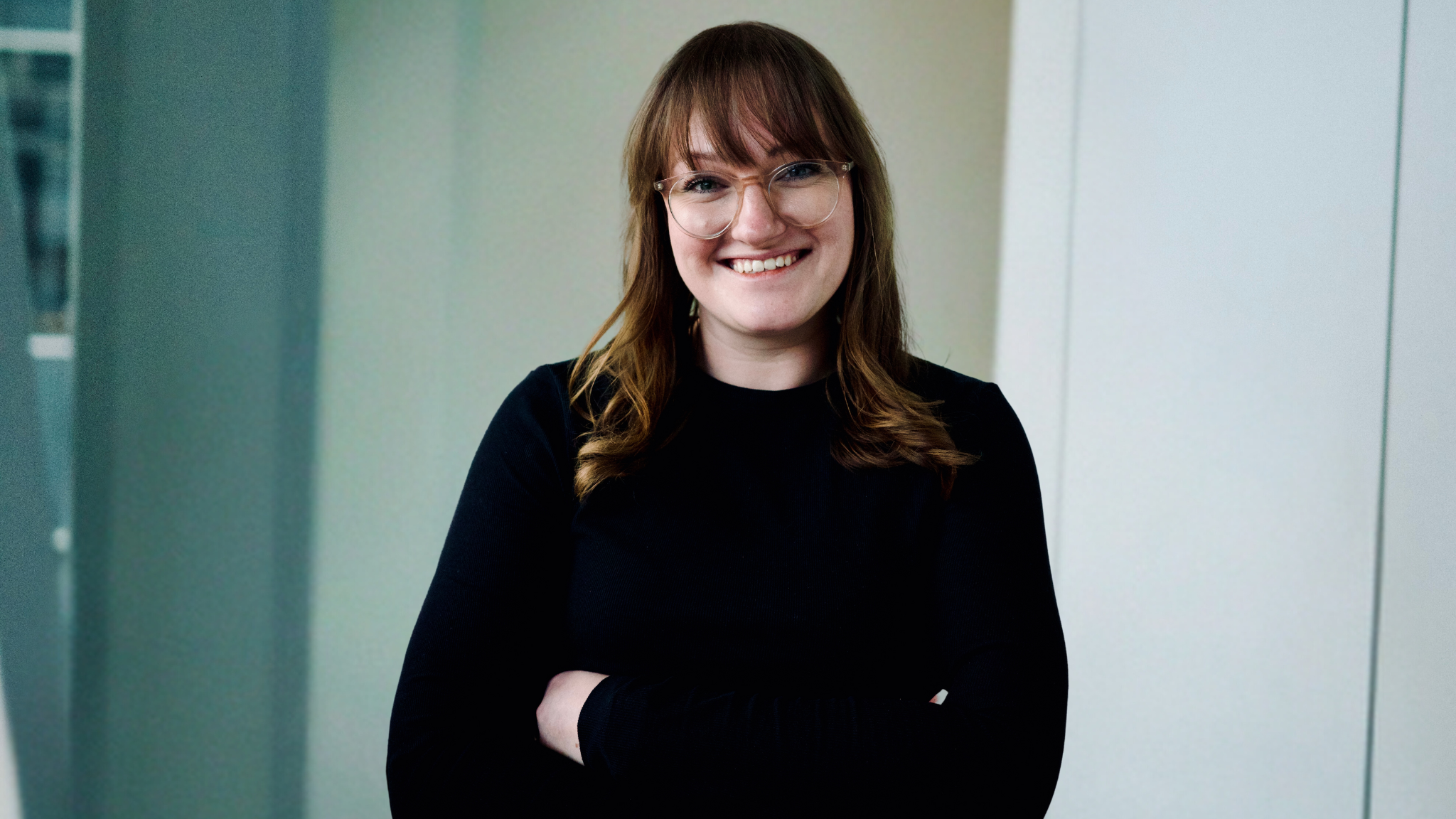Pizza, Programming, and Project Managers – Maike’s recipe for success for the GenAI Taskforce
July 26, 2024

July 26, 2024

Maike proves that GenAI is not just about code. Learn more about her expertise, AI experience, and how pizza and beer produce releases.
During my studies, I never planned to go into IT. I studied industrial engineering and I had some initial programming experience that was not optimal – we had to write code on paper. After that, I avoided the topic and instead chose subjects that tended toward project management. Through my student job at mm1, I then slipped into IT. I enjoy working with developers – for then I don’t have to be able to program myself.
We all wear many hats on the taskforce. Jenny, Laurenz, and I run the task force jointly. I am responsible for “Growth and Engagement,” that is, the business side of AI. At the same time, I am the product manager for vally, our valantic-internal chatbot. I analyze what is needed from a customer or user perspective and then pass it on to Jenny’s Tech Team.
Technically, there is gender bias in the training data, which is due to bias in spoken language, literature, and other materials. That’s a challenge. Personally, however, I also see AI as an opportunity to move away from stereotypical depictions. In addition, the field is so new that the possibilities are the same for everyone. Regardless of gender, everyone has to work their way in and can become an expert. In addition, more and more women are active in this area. The best example: The management circle of our task force. This is a beautiful development.
I use AI every day for a variety of tasks. I particularly appreciate our internal co-worker vally, which I often use for brainstorming, writing texts, and developing storylines – this is a huge efficiency gain. Recently, thanks to vally, my colleague and I were able to complete a project in just four hours; otherwise, it would have taken us four days. I also like to be inspired by AI in my private life, for example for brunch ideas, city trips, or training plans.
I was chair of the board for a long time, organized many events and summer camps, and managed the association with almost 300 people. Early on, I learned to take responsibility, make decisions, and remain calm even in stressful situations. But above all, I learned to lead and motivate teams. When it came to the famous “extra mile,” it was more likely than not the case of beer that would motivate a group of 18 – 23-year-olds to work on a Saturday morning. We found ways to get things done. And this still applies today: I don’t know how many releases I’ve produced with beer and pizza.
A good start to the day is quite straightforward for me: I need coffee and then I’m good. I don’t have a fancy morning routine and I’m not a person who goes jogging before work – I’m too much of a night owl for that. My go-to coffee order to start the day is therefore a double espresso, black and without milk.
Thank you for the insights and inspiring conversation, Maike.
Don't miss a thing.
Subscribe to our latest blog articles.